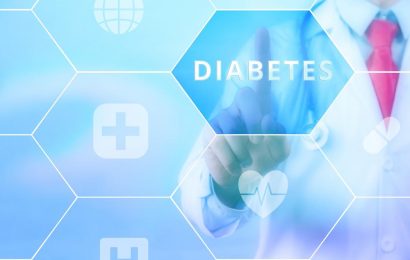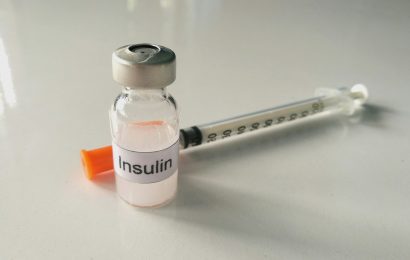Blaming patients for diabetes took a dangerous turn last week. Mick Mulvaney, Director of the Office of Management and Budget (OMB), said that diabetes should not be covered by health insurance.
Responding to a question about insurance, he stated “That doesn’t mean that we should take care of the person who sits at home, eats poorly and gets diabetes. Is that the same thing as Jimmy Kimmel’s kid [who was born with a pre-existing heart condition]? I don’t think that it is.”
The Democratic news website ShareBlue commented, “Under Mulvaney’s standard, an examination of [people with diabetes’] eating habits and how their disease was triggered would have to be undertaken before it could be determined whether they are deserving of health insurance or not. In the meantime, people will suffer and possibly die from their illness.”
Mulvaney’s views may or may not wind up being incorporated in the new health-care plan just passed by the House of Representatives, but the ignorance didn’t start with Trumpcare. Blaming people with Type 2 diabetes for their illness has long been mainstream opinion, which often spills over onto people with Type 1.
The American Diabetes Association (ADA) issued a strong statement that they were “disappointed and saddened” by Mulvaney’s words.
“Mr. Mulvaney’s comments perpetuate the stigma that one chooses to have diabetes based on his/her lifestyle,” ADA wrote. “All of the scientific evidence indicates that diabetes develops from a diverse set of risk factors, genetics being a primary cause… Nobody should be denied coverage or charged more based on their health status.”
Blaming patients for diseases like diabetes is scientifically wrong. The ignorance also applies to fatness. Behavior plays only a small part in the genesis of diabetes and weight. Other causes include:
• Toxic chemicals: Air and water pollution and food additives have all been linked in studies to both fatness and Type 2 diabetes.
• Intestinal bacteria: The trillions of microbes living in our guts have a major influence on our metabolism. Overweight people tend to have different bacteria than thin people. People with diabetes have different bacteria than people who don’t.
• Stress: Stress increases insulin resistance and raises blood sugars for “fight or flight” from a physical threat. Small amounts of stress are good, but chronic stress wears the body down, may raise blood pressure, and contributes to the development of diabetes.
People with less money, less education, or who are members of a discriminated-against group will have more stress. So they are more likely to get fat and to develop diabetes.
• Lack of healthy food and the wide availability of unhealthy food: People eat far too little fiber and far too much refined carbohydrates (starches and sugars), because that’s what is convenient and affordable.
Life conditions, not choice, are most important when it comes to health behavior. If you’re more stressed, you will tend to eat sugary foods for the mental comfort they bring. If you’re poor, you’re more likely to eat cheap, high-calorie foods to meet your energy needs. If you work long hours at a tough job, you may not feel up to exercising. If your neighborhood is not safe to walk in, you won’t walk
You can learn more about any of those causes by clicking on the links provided.
Role of medical care
Blaming people with diabetes is like all the other victim-blaming we do in America. But this time it comes with loss of medical care for people who are already sick. This could cripple or kill a lot of people, but it’s not the whole story.
It’s important to remember that, as William Polonsky PhD, CDE, head of the Behavioral Diabetes Institute, has said, 90% of all care in diabetes is self-care. To a large extent, physical activity, low-carb eating, and stress reduction are more important than medical care in Type 2. Some of the best Type 2 medicines, like metformin, are very cheap, almost free. So are some of the not-as-good ones, like the generic sulfonylureas, which still help many people.
Without insurance, people won’t be able to buy the newer, patented drugs, some of which work well. But people will still have access to generic drugs, and to herbs and other plant-based foods such as bitter melon, cinnamon , okra, guava, insulin plant, and vinegar. Many of these may be as effective as prescription drugs in some people.
Test strips are a big expense, but many health insurance plans don’t cover many of them anyway. Some ideas on saving on test strips are here.
My point is that lack of medical care doesn’t condemn you. It just makes things harder and puts more responsibility on the person with illness.
Health depends on people’s quality of life, their economic sufficiency, their support systems, and their self-management far more than on medical care. Which is not to say that people shouldn’t have medical care. Contact your congressional representatives and demand that diabetes care be covered, not excluded because of a pre-existing condition or made too expensive to use.
As our blogger Scott Coulter wrote here, everyone should have access to basic medical care, and could if we had Medicare for All. Please call your representatives about that, too. Medicare for All is S.1782 (Sanders) in the Senate, H.R.676 (Conyers) in the House, and has also been introduced in several states.
Of all the factors that seem to impact blood glucose, insulin absorption rates can be one of the trickiest to manage, says Scott Coulter. Bookmark DiabetesSelfManagement.com and tune in tomorrow to read more.





